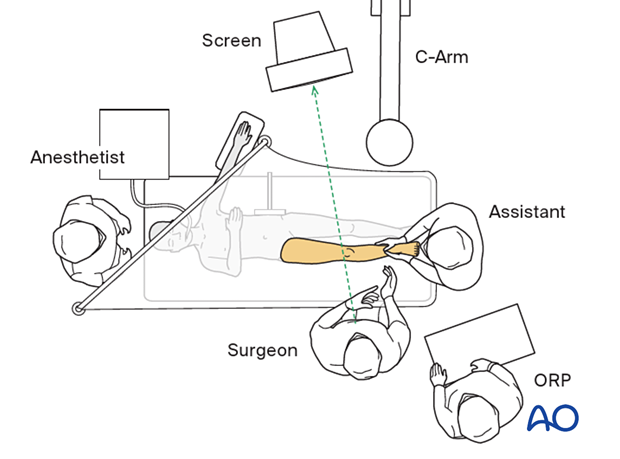Patient preparation in supine position
1. Introduction
The supine position is appropriate for the treatment of most distal tibial fractures.
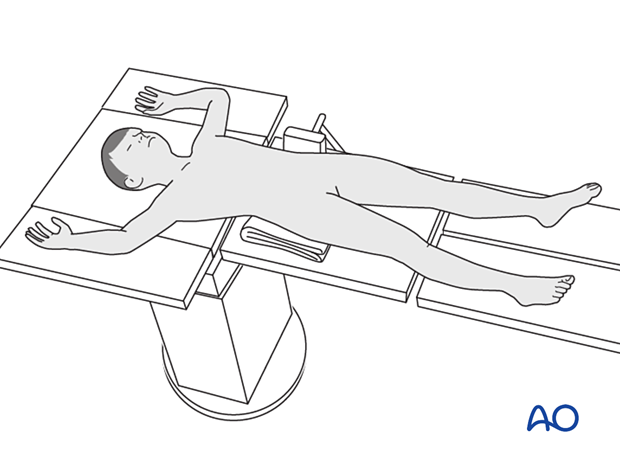
2. Preoperative preparation
Read the additional material on preoperative preparation.
3. Anesthesia
The addition of regional and local anesthesia may reduce postoperative pain.
4. Prophylactic antibiotics
Antibiotics are administered according to local policy and specific patient requirements.
5. Patient position
Place the patient supine on a radiolucent table.
For a lateral approach, a small support under the ipsilateral buttock may assist with ankle positioning.

A foam wedge or stack of blankets may be used to raise the injured leg for better imaging.

6. Tourniquet use
Tourniquet use depends on the morphology of the fracture and soft-tissue injury. This can reduce blood loss and improve visualization of the articular surface.
The effect of ischemia/reperfusion in the presence of a compromised soft-tissue envelope must also be considered.
Tourniquet width should be more than half the limb diameter and applied over a thin layer of padding.
The ischemic time should be less than 120 minutes.
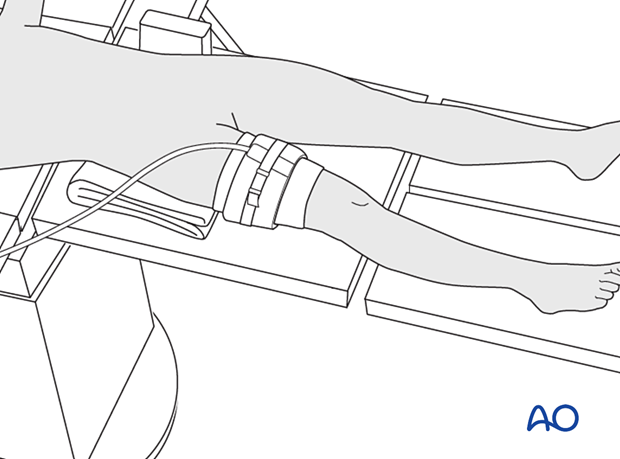
7. C-arm positioning
Position the C-arm so that AP and lateral views can be obtained.
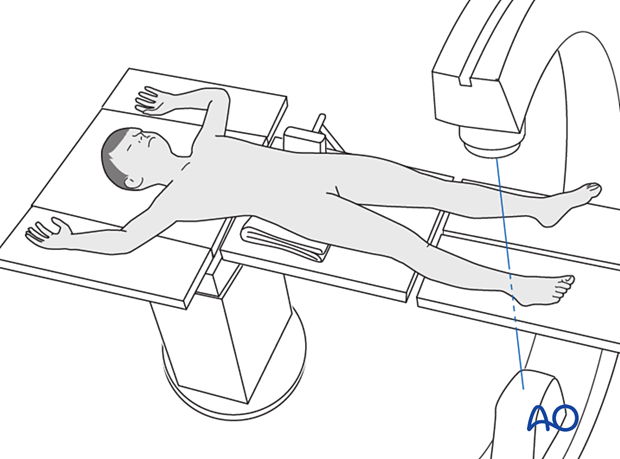
Lower the contralateral leg or raise the injured leg for lateral views.

8. Skin preparation and draping
Prepare the entire leg, including the foot.
Drape the leg to the mid-thigh or the level of the tourniquet.
Drape the C-arm in a conventional manner.
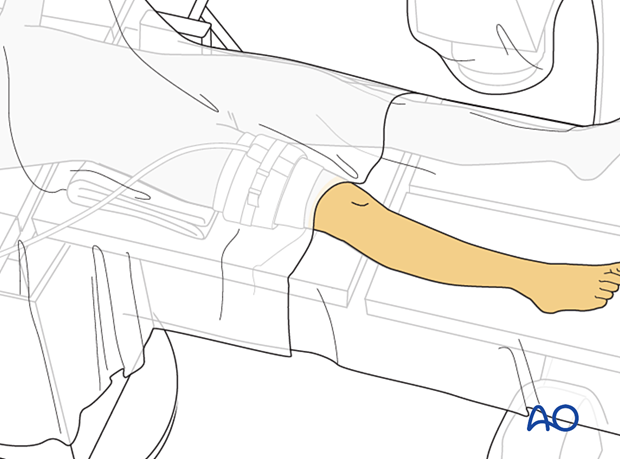
9. OR set-up
The optimal position of the surgeon is on the injured side of the patient.
The position of the image intensifier screen should allow a direct view for the surgeon.
